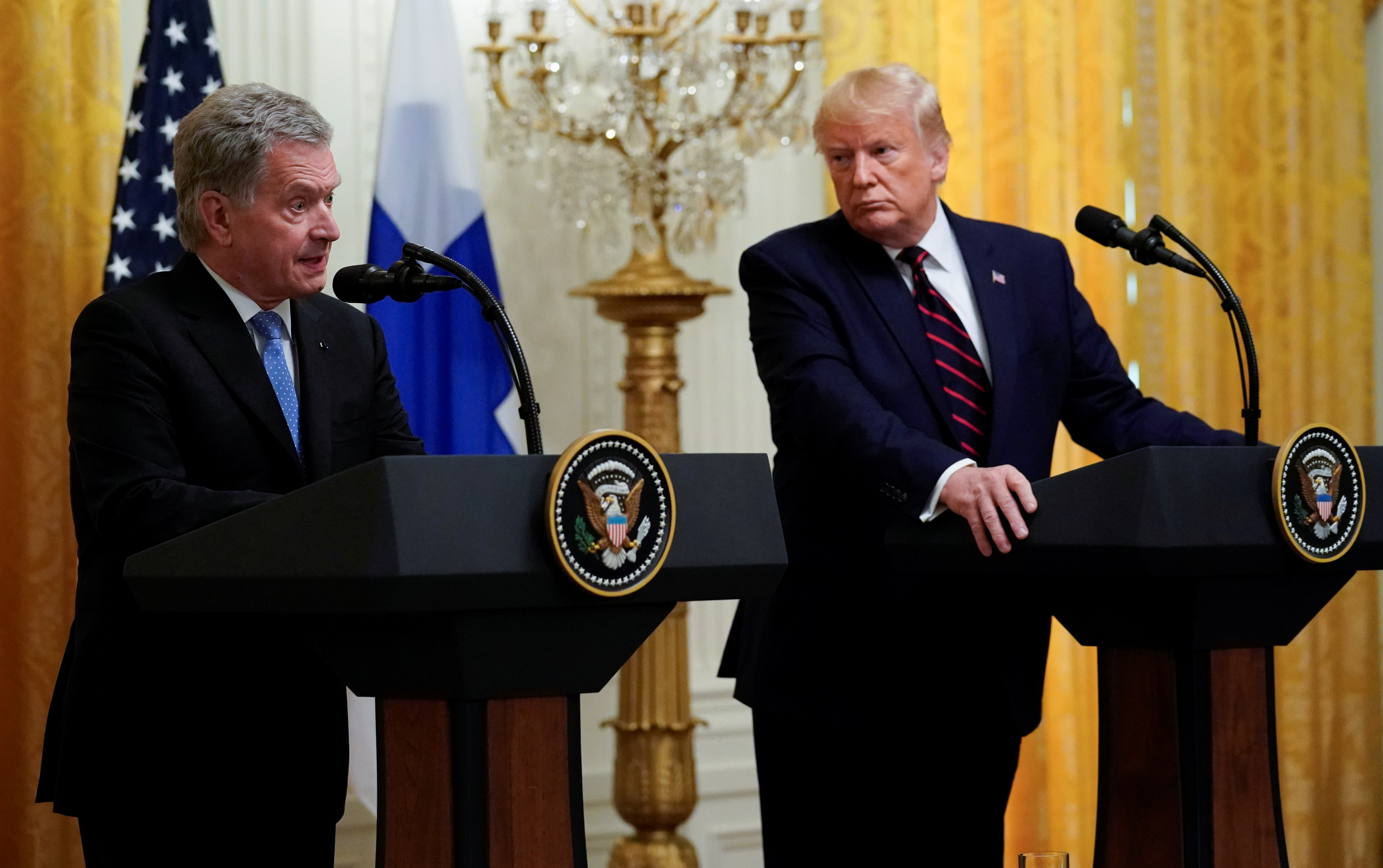Trump, Niinistö remarks show two different visions of the Arctic
Trump emphasized keeping non-Arctic nations out of the Arctic while Niinistö focused on environmental protection and keeping the region free from tension.

In a joint press conference that was overshadowed by U.S. President Donald Trump defending his actions in an ongoing whistleblower scandal that has prompted an impeachment inquiry, Trump and his Finnish counterpart Sauli Niinistö also spoke briefly about the Arctic.
The two offered different visions of the region. Trump asserted the need to keep other nations out of the Arctic, while Niinisto emphasized keeping tensions out of the region.
“America and Finland are also working together to advance stability, freedom of navigation, and respect for national sovereignty in the Arctic,” Trump said, according to a White House transcript. “Both of our nations are committed to a secure Arctic region — free from external intrusion, interference, and coercion. Simply put, we believe that the affairs of the Arctic should be governed by the actual nations of the Arctic. And, as you know, there are other people coming into the Arctic, and we don’t like it. And we can’t let it happen, and we won’t let it happen.”
Trump appeared to be referring to China, which has in recent years shown a growing interest in the Arctic, releasing its first Arctic policy white paper in 2018, in which it labelled itself a “near-Arctic state.”
That position prompted a harsh rebuke from U.S. Secretary of State Mike Pompeo, a staunch Trump supporter, who lashed out at China at a speech in Rovaniemi, Finland, earlier this year on the eve of the Arctic Council’s ministerial meeting.
Niinistö, in contrast, spoke of the need to keep tensions low in the Arctic, and to protect the region’s environment.
“Maybe there are also resources, but there are huge risks,” Niinistö said. “One of them is that we should keep the low tension we are used to have there. And that is what we have been discussing, and I do appreciate (President Trump’s) position to emphasize that. It is not a place for military.”
Most Arctic nations have, at least in public statements, echoed some version of this idea of “Arctic exceptionalism” — that relationships in the region can, and should, remain immune to tensions elsewhere. It’s a powerful enough idea that it was part of a push behind the nomination of the Arctic Council for a Nobel Peace Prize.
In practice, however, the Arctic has become more militarized in recent years, with Russia re-opening old Cold War bases in the region or establishing new ones, and the United States belatedly following a similar path, stationing Marines in Norway, for example, and reactivating the Navy’s 2nd Fleet.
Trump’s talk of “freedom of navigation” references disputes between the U.S. and other Arctic nations about who has sovereignty over Arctic sea routes — including claims from Russia to the Northern Sea Route and from Canada to the Northwest Passage. The U.S. Navy considered conducting “freedom of navigation operations,” or FONOPS, in the region this summer. Late last month, the U.S. Navy dispatched four guided-missile vessels to northern waters and established a temporary command center in Iceland.
Niinistö also diverged from Trump in his call to protect the environment — and in particular to curb black carbon, an issue Niinistö has long championed. Black carbon, also known as soot, can speed the rate of ice melt in the Arctic.
“And melting of sea ice in Arctic is very crucial,” Niinistö said. “I used to say that if we lose the Arctic, we lose the globe.”
Trump, meanwhile, has previously called climate change a hoax, and moved to withdraw the U.S. from the Paris climate accords. In May, the Arctic Council ministerial in Finland failed to issue a joint statement at its conclusion because the Pompeo-led U.S. delegation objected to its language about climate change.